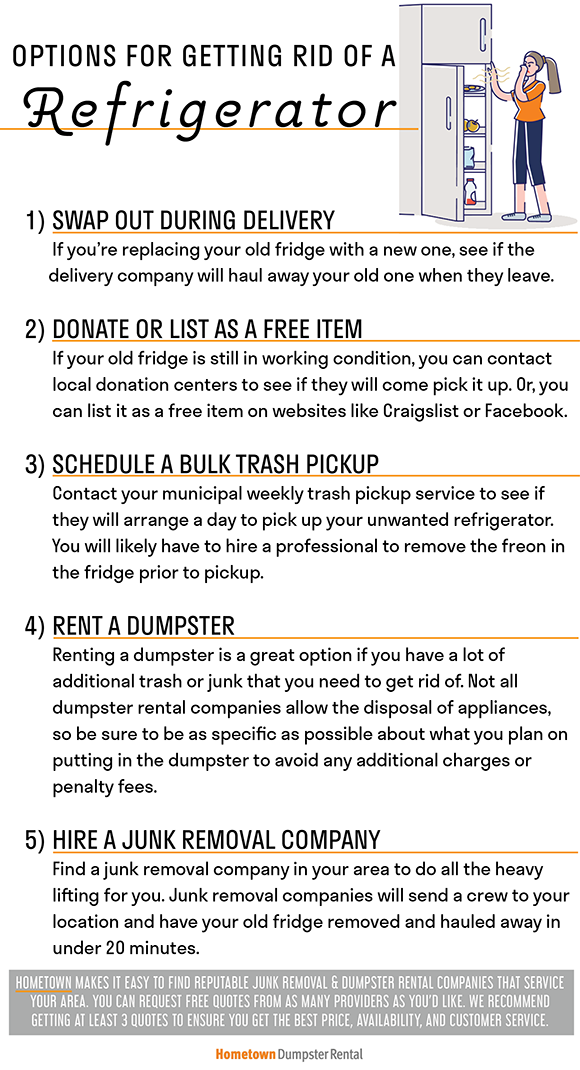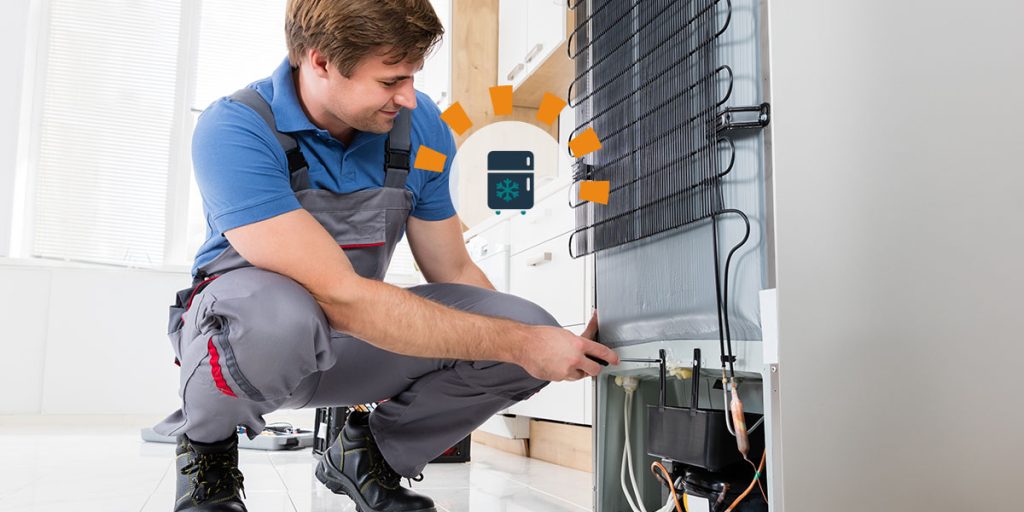The cost of removing Freon from a refrigerator typically ranges between $50 and $150. Professional HVAC technicians usually handle this task, factoring in labor and service fees.
Refrigerant disposal, especially substances like Freon (also known as R-22), requires a careful approach due to environmental regulations. Homeowners should take caution not to attempt this process themselves as it necessitates specialized knowledge and equipment. Moreover, doing so might be illegal and harmful to the environment.
The pricing can vary based on the amount of refrigerant, type of fridge, and the complexity of the removal process. It is essential to hire licensed professionals for the job, ensuring both personal safety and adherence to environmental standards. These experts will reclaim the Freon, preventing any release into the atmosphere which can deplete the ozone layer. Seeking a qualified HVAC technician to remove Freon from your refrigerator is an investment in both environmental responsibility and legal compliance.

Credit: www.amazon.com
Refrigerant Basics: What Is Freon?
Understanding Freon starts with recognizing its role in our everyday comfort. It keeps homes cool and refreshments chilled. But what is this substance, really? Let’s dive into the basics of Freon, including its functions and eventual transition to newer refrigerants.
The Role Of Freon In Cooling
Freon, a brand name for a group of refrigerants, makes air conditioners and refrigerators work. It does this by absorbing heat. Then it changes from a liquid to a gas. This cycle repeats to keep everything cold.
- Absorbs heat from inside the fridge or room
- Changes into a gas carrying the heat away
- Compresses back into a liquid, releasing the heat outside
- Starts over, keeping the cycle going
Types Of Refrigerant: Transition From Freon
Freon was common, but now we’re switching to safer options. The old type was harming the ozone layer. New types, called R-410A or R-134a, help protect the atmosphere.
| Old Freon | New Refrigerants |
|---|---|
| R-22 | R-410A, R-134a, and others |
| Ozone-depleting | Ozone-friendly |
| Being phased out | Becoming a standard |
Knowing which type your appliance uses is key. Removal costs differ based on the type and your location.
Signs Your Refrigerator Needs A Freon Recharge
Understanding when a refrigerator needs a Freon recharge is crucial. A properly functioning fridge keeps food fresh. However, with time and wear, Freon levels can drop. This is the coolant responsible for keeping your refrigerator cold. Below are distinct signs indicating your appliance might require a recharge.
Inadequate Cooling
If your refrigerator feels warm, it’s an alert. A fridge should maintain a cool temperature. Check for unusually long cooling times, or if the temperature isn’t consistent. This could suggest Freon levels are low.
Strange Noises And Odors
- Hearing hissing or bubbling noises? These could signal a Freon leak.
- A chemical smell coming from your fridge is another sign.
Elevated Electricity Bills
An unexpected spike in your power bill often correlates with a fridge working harder than normal. Recharging Freon might resolve this and bring the bills down.
Calculating Refrigerant Needs
Understanding the cost of removing Freon from a refrigerator starts with calculating refrigerant needs. This is key to determining both the labor and the material costs involved.
Capacity And Refrigerant Type
The cost varies greatly depending on the refrigerator’s capacity and the type of refrigerant it uses. Types range from older Freon (R-22) to modern refrigerants (R-410A, R-134a). R-22 is more expensive due to its phase-out under environmental regulations.
Understanding Refrigerator Specifications
Locate the specification plate on your refrigerator. This plate lists necessary details. These include model number, capacity, and required refrigerant type. Matching this information with local disposal rates and services is essential.
Here is a simplified breakdown for calculation:
- Identify specification plate on the unit.
- Determine refrigerant type required for your model.
- Estimate the amount based on refrigerator’s specifications.
- Match this against local average disposal costs.
Service providers might charge based on different factors. This can include service fees, refrigerant removal per pound, and environmental fees. Check with a local technician for precise costs.
List of possible fees:
| Service Type | Estimated Cost Range |
|---|---|
| Basic Service Fee | $50 – $150 |
| Refrigerant Removal per Pound | $10 – $30 |
| Environmental Fee | $5 – $25 |
Always consult with a professional for accurate removal and disposal costs. Suitably trained technicians ensure safe and environmentally responsible disposal of refrigerants.

Credit: www.hometowndumpsterrental.com
Cost Factors For Freon Extraction
Understanding the costs involved in removing Freon from a refrigerator is vital before hiring a service. Several factors influence the overall price. These include professional fees, location, and the type of refrigerant used.
Service Professional Fees
The technician’s expertise plays a significant role in fee determination. Certified professionals often charge more due to their qualifications and guarantee of safe disposal. Expect variations based on the service provider’s experience and reputation. Freon removal is a specialized job requiring proper safety measures and equipment.
Geographical Variations
Location impacts costs due to travel distance, local regulations, and economic conditions. Urban areas may present higher fees compared to rural locations. Certain regions have strict environmental rules that may increase service costs due to additional paperwork or prescribed disposal methods.
Type Of Refrigerant
The type of Freon or refrigerant compounds the complexity. Older refrigerators may use CFCs, which are more harmful to the ozone layer. Refrigerants like R-12 often cost more to remove due to stricter handling requirements. Newer Fridges likely use eco-friendly substances that are less expensive to extract and handle.
| Cost Factor | Impact on Price |
|---|---|
| Service Professional Fees | Varies by expertise and qualifications |
| Geographical Variations | Depends on locality and regulations |
| Type of Refrigerant | Older CFCs typically cost more |
Diy Vs Professional Servicing
Embarking on the journey of refrigerator maintenance brings us to a crucial decision. Should we pull up our sleeves and tackle the task ourselves or call in the professionals? Understanding the key differences between DIY versus professional servicing is vital. It influences both outcome quality and costs incurred when dealing with refrigerant, like Freon, in your refrigerator.
Evaluating Expertise And Risks
Before diving into a DIY Freon removal, assess your expertise carefully. Removal requires specific tools and knowledge of the refrigeration system. Mishandling can lead to Freon leaks, which are harmful to both health and the environment. Professional technicians are EPA-certified, ensuring safe and effective removal. Consider the following risks:
- Potential Freon exposure which can pose health risks
- Environmental harm due to improper disposal
- Damaging the refrigerator system, leading to costly repairs
Cost-benefit Analysis Of Diy
Attempting DIY could save on service fees. However, hidden costs and risks exist:
| DIY Costs | Professional Service Costs |
|---|---|
|
|
Considering long-term savings, hiring a professional may be cost-effective. Proper disposal ensures no future legal or environmental liabilities. The warranty of professional work minimizes the risk of additional repairs.
Remember, the cheap comes out expensive when dealing with specialized tasks. Weigh the initial costs of DIY against potential long-term professional benefits before making your decision.
Environmental Considerations And Regulations
Understanding Environmental Considerations and Regulations is crucial when removing Freon from a refrigerator. Known for its impact on the ozone layer, Freon requires careful handling. Here’s how existing laws ensure safe disposal and what costs might entail.
Disposal Of Old Refrigerant
Freon, the refrigerant in many older fridges, harms the environment if released into the atmosphere. A fridge contains 3 to 10 pounds of Freon on average. Removing and disposing of Freon often requires professional services. The costs vary based on numerous factors, including location and fridge size. Below, find typical steps and associated costs.
- Inspection Fee: Professionals might charge to assess the fridge, typically around $40-$80.
- Removal Cost: Proper extraction costs average $50-$150, depending on the amount of refrigerant.
- Disposal Fee: Expect to pay $10-$50 for environment-friendly disposal.
Some facilities might offer rebates or incentives for safe disposal. Check local programs to save on costs.
Legal Requirements For Handling Freon
Freon falls under strict regulatory standards to protect the environment. The Environmental Protection Agency (EPA) outlines precise guidelines for handling this substance. Only certified technicians can legally deal with Freon due to its hazardous nature.
Violating these regulations involves hefty fines, reaching up to $37,500 per day per violation. It’s vital to hire professionals who adhere to these standards to avoid penalties and safeguard the environment.
Ensure compliance: Confirm that your service provider holds the necessary EPA certification. This measure guarantees that Freon gets removed and disposed of responsibly.
Extending Your Refrigerator’s Life
Keeping your refrigerator in tip-top shape is key to avoiding costly Freon removal. Regular upkeep ensures your fridge runs efficiently. This can mean less frequent and less expensive maintenance over time. Follow these guidelines to prolong your refrigerator’s lifespan and keep costs down.
Regular Maintenance Tips
Regular maintenance is the backbone of refrigerator longevity. Here are ways to maintain your fridge:
- Clean the coils: Dust and debris make your fridge work harder. Cleaning the coils twice a year saves energy and reduces strain.
- Check door seals: Loose door seals let cool air escape, forcing the fridge to run more. Inspect and clean them regularly, replacing if necessary.
- Keep it full: A well-stocked fridge retains cold better than an empty one. Keep it filled, but don’t overcrowd.
- Set the right temperature: Aim for between 37°F and 40°F to keep your food fresh without overworking the system.
When To Consider Replacement
Even with meticulous maintenance, refrigerators have a lifespan. Noticing the following signs may signal it’s time to consider a new fridge:
- Excessive Noise: Loud sounds could point to a failing motor.
- Constant Running: When a fridge can’t maintain temperature, it may run continuously.
- High Energy Bills: Older fridges use more power than newer, energy-efficient models.
- Over 10 Years Old: Refrigerators typically last 10 to 15 years. Post this age, consider an upgrade.
Timely replacement can prevent Freon leaks, saving you the hassle and cost of removal. A modern fridge might be an upfront investment but comes with longer life and better efficiency.

Credit: homeguide.com
Frequently Asked Questions Of How Much Does It Cost To Remove Freon From Refrigerator
What Is The Average Cost For Freon Removal?
The average cost to remove Freon from a refrigerator ranges from $50 to $150. Costs can vary based on local labor rates and the amount of Freon to be extracted.
Is Special Equipment Needed For Freon Extraction?
Yes, special equipment is required for Freon extraction. Certified technicians use refrigerant recovery machines designed to safely remove and contain Freon from refrigerators.
Can I Legally Remove Freon Myself?
No, it is illegal to remove Freon yourself unless you are a certified technician. Improper handling can lead to environmental harm and legal penalties.
How Long Does Freon Removal Take?
Freon removal typically takes about 30 minutes to an hour. The exact time depends on the appliance’s complexity and the technician’s experience.
Conclusion
Navigating the cost to remove Freon from a refrigerator needn’t be complex or costly. Crucial to the environment and your wallet, understanding these expenses prepares you for a smoother service experience. Trust professional assistance for safe, efficient disposal and legal compliance.
Summing up, investing in proper Freon removal safeguards both nature and your finances.

